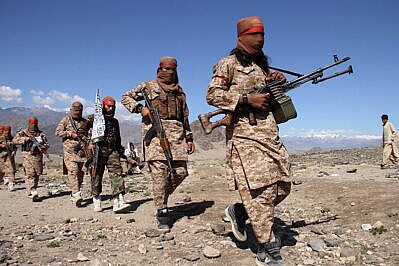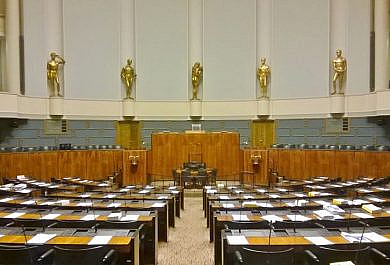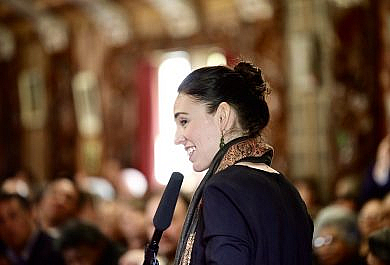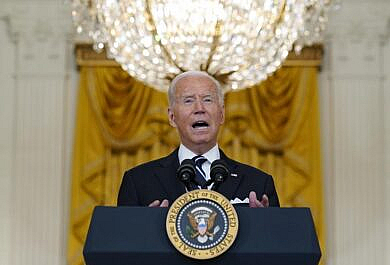Conflict with the Taliban has flared up again in Southeastern Afghanistan. What happened?
Summary
Today marks the fourth day of clashes between Afghan forces, supported by the US, and the Taliban, who violated the peace talks agreed upon earlier this year in an aggressive offensive earlier this week.
- Afghan forces are trying to defend Lashkar Gah, the capital of Helmand Province, from a Taliban offensive which began on Sunday. The Helmand province is a geopolitically strategic stronghold for Afghan forces, located near the border of Pakistan. The BBC assesses that the Taliban is likely pursuing an aggressive and well-coordinated offensive in Helmand as a way of “again testing the strength of Afghan forces, as well as the US’s commitment to its ally.”
- At least 70 people, including multiple civilians, have died and an estimated 35,000 Afghans have fled their homes in the wake of the violence. Much of the area is without power or communications services after Taliban forces attacked a power substation on Monday morning, and multiple major roads were closed after they destroyed key bridges.
- The United States assisted in the defense of Afghan military forces by conducting targeted airstrikes in Southern Helmand. Military spokesman Colonel Sonny Leggett said that the United States would continue to provide support if attacks continued from the Taliban. NATO Commander General Scott Miller ordered the Taliban to “immediately stop their offensive actions in Helmand Province and reduce their violence around the country.”
- The violence comes months after a historic deal was negotiated between the United States and Taliban forces. The agreement would allow US troops to withdraw from Afghanistan if the Taliban agrees to sit down with the Afghan government and negotiate peace. These peace talks between Afghanistan and the Taliban began in late September in Doha. Both deals have been interrupted by the Taliban’s latest instigation of violence.
- The latest offensive has raised serious questions about the tenability of ongoing peace between the Afghan government and the Taliban, and concerns that the peace talks may fall through. For the United States, this means that the troop withdrawal which Donald Trump said would likely happen “by Christmas” will likely be delayed.
- The United States has been involved militarily in Afghanistan since 2001, when the Bush administration sent troops there to depose the then-ruling Taliban regime. The administration believed that the Taliban was protecting the al-Qaeda terrorists responsible for the 9/11 attacks. Although the United States succeeded in toppling the regime and establishing a new government, the Taliban has since launched a bloody insurgency in an effort to regain power. Although multiple attempts have been made to establish peace between the insurgents and the government, and to withdraw US troops from the region, the strength of the insurgency has required them to stay.
![]()
- Condemns Trump’s troop withdrawal plan, reporting that Afghans in places where troops have already withdrawn have been left in the lurch, and that the president does not have support from his own staff or generals to pull out as quickly as he has promised.
- Points out that Trump’s politics appeal to the Taliban, which endorsed his re-election campaign last week.
- Is historically critical of the peace deal that Trump penned with the Taliban in February, and argues that Trump does not really want to withdraw troops.
![]()
- Supports Trump’s troop withdrawal plan, reporting that it is in accordance with the desires of all parties and signifies a “positive step” towards achieving peace in the region.
- Frames the United States as justified for acting within the limits of its peace accords, and lauds them for doing the right thing by defending the Afghan troops like it promised.
- Reports that Donald Trump has handled the situation well, and that “if it unravels it’s because of the Taliban.”
© Evelyn Torsher, 2020






